
- Shandong Loyal Industrial Co.,Ltd.
- Macaroni Production Machine Instant Noodle Machine Biscuit Making Machine
Home> Company News> The Ultimate Cereal Making Machine Equipment Guide to 2024

The Ultimate Cereal Making Machine Equipment Guide to 2024
2024-07-04 10:47:11Introduction to Cereal Making Machine Equipment
Cereal making machine equipment plays a crucial role in the food manufacturing industry, ensuring the efficient production of various types of cereals. These machines are designed to handle different stages of cereal production, from raw material processing to final packaging. The equipment used in cereal production includes mixers, extruders, dryers, and coating machines, each performing specific functions to create high-quality cereal products. By integrating advanced technologies, manufacturers can achieve greater precision, consistency, and efficiency in their production processes.
One of the primary benefits of cereal making machine equipment is its ability to produce cereals at a large scale while maintaining product quality. These machines are equipped with features that allow for the control of various parameters such as temperature, moisture, and pressure, which are essential for producing cereals with the desired texture and taste. Additionally, modern cereal making machine equipment is designed to be energy-efficient, reducing production costs and minimizing environmental impact. As the demand for cereal products continues to grow, manufacturers are investing in state-of-the-art equipment to meet consumer expectations and stay competitive in the market.
Choosing the right cereal making machine equipment is critical for any cereal manufacturer. Factors to consider include the type of cereal to be produced, production capacity, and the level of automation required. It's important to select equipment that is not only suitable for current production needs but also adaptable to future trends and innovations in the industry. Investing in high-quality, reliable equipment can significantly enhance production efficiency, reduce downtime, and ensure consistent product quality. Manufacturers should also consider the ease of maintenance and availability of technical support when selecting cereal making machine equipment.
Maintaining cereal making machine equipment is essential to ensure its longevity and optimal performance. Regular maintenance includes cleaning, inspecting for wear and tear, and replacing worn-out parts. Proper maintenance practices can prevent equipment failures, reduce production interruptions, and extend the lifespan of the machinery. Additionally, manufacturers should provide training for their staff on how to operate and maintain the equipment effectively. By prioritizing maintenance, manufacturers can maximize the return on investment in their cereal making machine equipment and maintain high production standards.
Cereal making machine equipment is vital for the efficient production of cereals, offering numerous benefits such as scalability, product quality control, and energy efficiency. Choosing the right equipment involves considering various factors, including production needs and future adaptability. Regular maintenance is crucial to ensure the longevity and performance of the equipment. As the cereal industry continues to evolve, investing in advanced cereal making machine equipment will be key to maintaining competitiveness and meeting consumer demands.

Key Components of Cereal Making Machine Equipment
|
Component |
Description |
|
Mixer |
Combines ingredients uniformly to ensure consistent cereal quality |
|
Extruder |
Shapes the cereal by forcing mixed ingredients through a die |
|
Dryer |
Removes moisture from cereal to extend shelf life and ensure crisp texture |
|
Coater |
Applies flavors or coatings to cereal pieces for taste enhancement |
|
Cooling Conveyor |
Cools down the cereal after drying or coating to stabilize the shape and quality |
|
Packaging Machine |
Packs the finished cereal into bags or boxes, maintaining freshness and facilitating distribution |
|
Control System |
Automates and monitors the production process, ensuring precision and efficiency |
|
Weighing System |
Ensures accurate measurement of ingredients and final product for quality control |
|
Storage Silos |
Stores raw materials and finished products in a controlled environment |
|
Quality Control Equipment |
Tests cereal for consistency, texture, flavor, and adherence to safety standards |
|
Cleaning System |
Maintains hygiene and prevents contamination by cleaning the equipment regularly |
|
Cutting Machine |
Cuts cereal into desired shapes and sizes, ensuring uniformity |
|
Inspection System |
Detects defects and ensures that only high-quality cereal products are packaged and shipped |
|
Conveyor Belts |
Transports ingredients and finished products between different stages of the production process |
|
Dust Collection System |
Collects and removes dust generated during production to maintain a clean and safe working environment |

Advanced Technologies in Cereal Making Machine Equipment
|
Advanced Technologies |
Description |
|
IoT Integration |
Incorporates Internet of Things for real-time monitoring and control of production processes. |
|
AI and Machine Learning |
Utilizes AI algorithms to optimize cereal production efficiency and quality control. |
|
Automated Cleaning Systems |
Implements self-cleaning mechanisms to reduce downtime and enhance hygiene standards. |
|
Precision Sensors |
Uses advanced sensors for accurate measurement of ingredients and process variables. |
|
Data Analytics |
Analyzes production data to improve yield, reduce waste, and enhance decision-making capabilities. |
|
Robotics |
Introduces robotic systems for handling and packaging cereals, increasing speed and precision. |
|
Remote Monitoring |
Enables remote access to machine diagnostics and performance metrics for proactive maintenance. |
|
3D Printing |
Utilizes 3D printing for rapid prototyping of machine components, reducing production lead times. |
|
Energy-Efficient Technologies |
Implements energy-saving technologies such as regenerative braking and efficient motor systems. |
|
Augmented Reality (AR) for Maintenance |
Provides AR tools for technicians to visualize machine internals and streamline maintenance tasks. |

Energy Efficiency in Modern Cereal Making Machine Equipment
Energy efficiency is a crucial consideration in modern cereal making machine equipment. Manufacturers are increasingly focusing on developing machines that consume less energy while maintaining high production standards. This shift towards energy-efficient machinery not only helps in reducing operational costs but also aligns with global sustainability goals. As energy costs continue to rise, investing in energy-efficient cereal making machine equipment becomes a strategic decision for many businesses.
The design of modern cereal making machine equipment incorporates advanced technologies aimed at minimizing energy consumption. For instance, machines now often feature improved insulation materials that reduce heat loss during the production process. Additionally, the integration of variable frequency drives (VFDs) allows for the precise control of motor speeds, which helps in reducing energy wastage. These innovations ensure that cereal production is both efficient and environmentally friendly.
Moreover, the automation of cereal making machine equipment plays a significant role in enhancing energy efficiency. Automated systems can optimize the production process by adjusting parameters in real-time based on the specific requirements of each production run. This reduces the need for manual interventions and ensures that the machines operate at optimal energy levels. The use of sensors and data analytics further aids in identifying areas where energy savings can be achieved, making the entire production process more efficient.
Regular maintenance and proper operation of cereal making machine equipment are essential for maintaining energy efficiency. Scheduled maintenance helps in identifying and rectifying issues that could lead to energy losses. Operators should be trained to use the equipment efficiently, ensuring that machines are not running unnecessarily and that production schedules are optimized. By focusing on these areas, businesses can significantly reduce their energy consumption and operational costs, making their cereal production processes more sustainable and cost-effective.
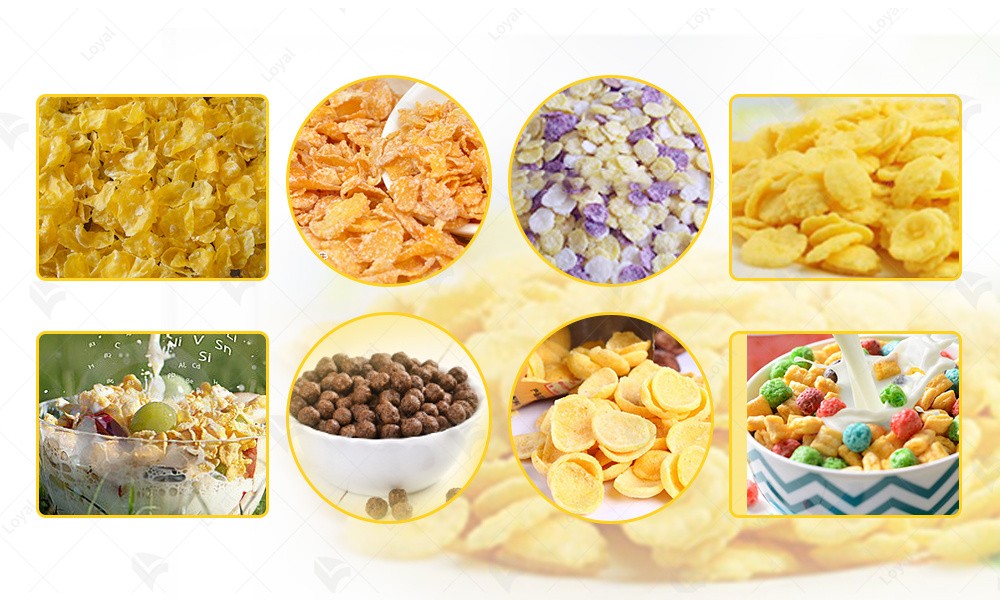
Safety Standards and Regulations for Cereal Making Machine Equipment
Ensuring the safety of cereal making machine equipment is paramount in the food processing industry. Adhering to strict safety standards helps prevent accidents and ensures the production of high-quality cereal products. Various international and national regulatory bodies set these standards to safeguard both operators and consumers. Compliance with these standards is not only a legal requirement but also a critical aspect of maintaining a company's reputation and operational efficiency.
One of the primary safety standards for cereal making machine equipment involves the design and construction of the machinery. Equipment must be designed with safety features such as emergency stop buttons, protective guards, and interlock systems. These features help prevent injuries by stopping the machine instantly in case of an emergency. Additionally, machines should be constructed using materials that are safe for food contact, ensuring that no harmful substances contaminate the cereal during production.
Regular maintenance and inspection are also crucial to uphold safety standards for cereal making machine equipment. Scheduled inspections help identify potential issues before they become serious problems, reducing the risk of accidents. Maintenance protocols should include checking the functionality of safety devices, inspecting electrical systems, and ensuring that all moving parts are properly lubricated and in good condition. Keeping detailed records of maintenance activities can also aid in compliance with safety regulations.
Training and education of personnel are vital components of safety standards for cereal making machine equipment. Operators should be thoroughly trained on how to use the machinery safely and effectively. Training programs should cover the proper use of safety features, emergency procedures, and routine maintenance tasks. By ensuring that all operators are knowledgeable about the equipment, companies can significantly reduce the likelihood of accidents and improve overall safety in the production facility.
Adhering to safety standards and regulations for cereal making machine equipment is essential for the well-being of both operators and consumers. Proper design and construction, regular maintenance, and comprehensive training programs are key factors in ensuring that the equipment operates safely and efficiently. By prioritizing safety, companies not only comply with legal requirements but also enhance their reputation and operational success in the competitive food processing industry.

Common Challenges and Solutions in Cereal Production
Cereal production faces several challenges, primarily related to maintaining consistent quality and efficiency. One common challenge is ensuring uniformity in the size and shape of cereal pieces. Variations can affect the product's appearance and texture, leading to customer dissatisfaction. To address this, manufacturers use advanced Cereal Making Machine Equipment designed to produce consistent and uniform cereal shapes. Regular maintenance and calibration of these machines are crucial to maintain their efficiency and precision.
Another significant challenge in cereal production is managing ingredient quality and consistency. Variations in raw materials can lead to inconsistencies in the final product, affecting taste and nutritional value. To combat this, manufacturers should implement strict quality control measures and source high-quality ingredients from reliable suppliers. Using advanced Cereal Making Machine Equipment can also help in precisely measuring and mixing ingredients, ensuring a consistent product every time.
Energy efficiency is another concern in cereal production, as it directly impacts operational costs. High energy consumption can lead to increased production costs and reduced profitability. Modern Cereal Making Machine Equipment is designed with energy efficiency in mind, incorporating technologies that minimize energy usage without compromising production capacity. Regularly updating equipment and investing in energy-efficient machinery can significantly reduce energy costs and improve overall production efficiency.
Lastly, maintaining food safety and hygiene standards is a critical challenge in cereal production. Contamination can occur at various stages of production, posing serious health risks to consumers. Implementing strict sanitation protocols and using Cereal Making Machine Equipment with built-in hygiene features can help mitigate this risk. Regular cleaning and maintenance of equipment, along with adherence to food safety regulations, are essential to ensure the production of safe and high-quality cereal products.
Future Trends in Cereal Making Machine Equipment
The cereal making machine equipment industry is evolving rapidly, driven by technological advancements and changing consumer preferences. One significant trend is the integration of automation and artificial intelligence. These technologies are enhancing production efficiency, reducing manual labor, and improving product consistency. Manufacturers are increasingly adopting AI-driven systems for quality control and predictive maintenance, ensuring that equipment operates at optimal levels with minimal downtime.
Sustainability is another critical trend shaping the future of cereal making machine equipment. Companies are investing in eco-friendly materials and energy-efficient technologies to reduce their carbon footprint. Innovations such as biodegradable packaging and energy-saving machinery are becoming standard. This shift not only meets regulatory requirements but also aligns with consumer demand for environmentally responsible products. As a result, Cereal Making Machine Equipment that prioritizes sustainability is gaining traction in the market.
Customization and flexibility in production are also becoming more prevalent. Consumers are seeking personalized products, prompting manufacturers to develop equipment that can handle smaller, more varied production runs. Modular Cereal Making Machine Equipment allows for quick adjustments to production parameters, enabling manufacturers to cater to diverse consumer tastes without compromising efficiency. This adaptability is crucial in a market where trends and preferences can change rapidly.
Lastly, the integration of the Internet of Things (IoT) is transforming the cereal making machine equipment landscape. IoT-enabled devices provide real-time data and analytics, allowing manufacturers to monitor and optimize every aspect of production. This connectivity facilitates better decision-making and enhances traceability, ensuring that products meet the highest standards of quality and safety. As IoT technology continues to advance, its application in Cereal Making Machine Equipment will likely become even more sophisticated, driving further improvements in efficiency and productivity.
References
1.Food Processing Technology https://www.foodprocessing-technology.com
2. ProFood World https://www.profoodworld.com
3. Food Engineering https://www.foodengineeringmag.com
4. Food Manufacturing https://www.foodmanufacturing.com
5. eat and Control https://www.heatandcontrol.com

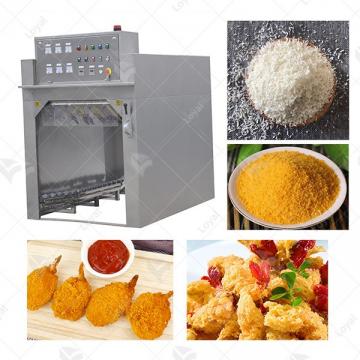 Commercial Japanese Panko Bread Crumb Grinder Machine
Commercial Japanese Panko Bread Crumb Grinder Machine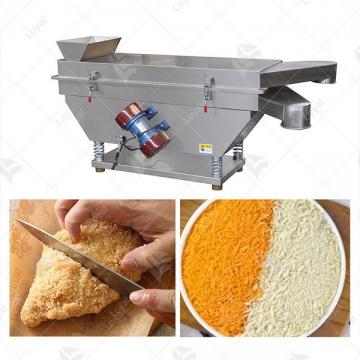 Japanese Bread Crumbs Processing Line
Japanese Bread Crumbs Processing Line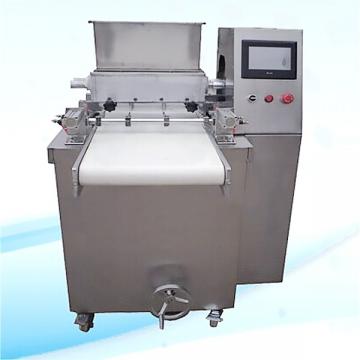 Automatic Cookies Making Machines
Automatic Cookies Making Machines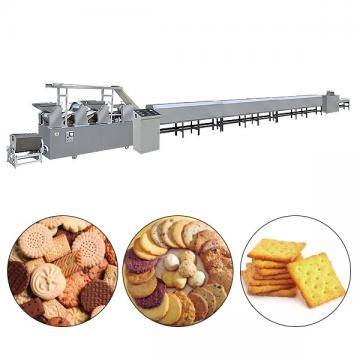 Fully Automatic Biscuit Making Machines
Fully Automatic Biscuit Making Machines